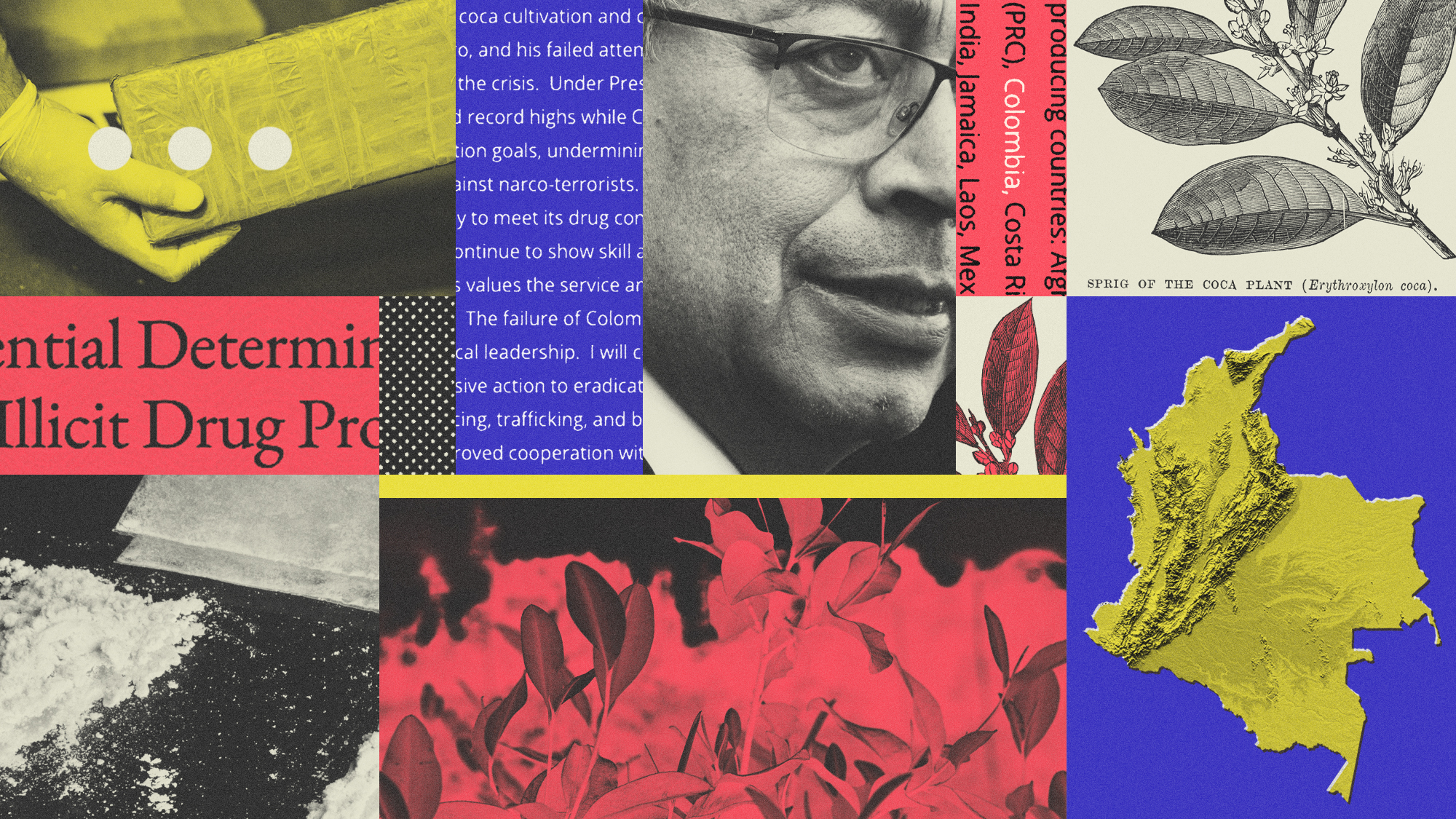The US and Colombia renew their feud over the drug war
The US has accused Colombia of failing in its drug-fighting efforts


A free daily email with the biggest news stories of the day – and the best features from TheWeek.com
You are now subscribed
Your newsletter sign-up was successful
Colombia has long battled a reputation associated with images of narcoterrorism and Pablo Escobar, but it has actually been in lockstep with the U.S. in fighting the war on drugs since the late 1990s. Now, though, the Trump administration has begun sparring with Colombia over its anti-drug efforts, saying the country has not done enough to stem the flow of illicit substances. Colombian officials have pushed back against the accusations, which could mark the end of close ties between the two countries.
‘Failed demonstrably’ to stop drugs
Since President Donald Trump retook office, there has been “anxiety in Colombia, where soaring cocaine production has stoked fears of sweeping U.S. sanctions,” said NPR. While the White House has not yet imposed sanctions on Colombia, it did take the significant step of decertifying it as a drug control partner nation. This marks the first time since 1997 that it won’t be on that list.
Colombia has “failed demonstrably to meet its drug control obligations,” the U.S. Department of State said in a memorandum announcing the decertification. Trump chose to decertify Colombia because the country’s “coca cultivation and cocaine production have surged to all-time records” under Colombian President Gustavo Petro, who has been in office since 2022.
The Week
Escape your echo chamber. Get the facts behind the news, plus analysis from multiple perspectives.

Sign up for The Week's Free Newsletters
From our morning news briefing to a weekly Good News Newsletter, get the best of The Week delivered directly to your inbox.
From our morning news briefing to a weekly Good News Newsletter, get the best of The Week delivered directly to your inbox.
The nation is indeed “behind a record-breaking year for the global cocaine market,” said NPR. From 2022 to 2023 (the most recent years with available data), the level of global cocaine production rose 34% to 3,708 tons, largely due to a 50% increase in Colombia's cocaine yield, according to a report from the United Nations Office on Drugs and Crime. In 2023, the UN also found Colombia's coca crop reached record high production.
Hitting back
Petro, Colombia's first democratically elected left-wing president, decried the decision by the United States, arguing that it was not grounded in reality. Colombia has “managed to slow down the growth of crops that has been occurring since 2013,” Petro said in a translated post on X. What is “happening with the current U.S. government, co-opted by the Miami far-right network, which is allied with the Colombian far-right, doesn’t worry me.”
The country has also “seized 1,000 tons of cocaine this year and more than 5,000 cocaine-making laboratories,” Petro said on X. The United States is “simply participating in Colombia’s internal politics; it wants a puppet president. The Colombian people will respond,” Petro said in a separate post, arguing the U.S. interests in the region were not actually based on the drug war.
But the rift between Trump and Petro means relations between the U.S. and Colombia have “frayed,” said Time. In response to Trump, Colombia has “suspended its arms purchases from the U.S.” and made clear that it has “dedicated resources to combating cocaine production and trafficking.”
A free daily email with the biggest news stories of the day – and the best features from TheWeek.com
There could also be bigger consequences for both nations, as the decision from the Trump administration is “likely to hit foreign investment, multilateral funding and tourism, as a long-time ally of Washington now finds itself in the same rogue category as Venezuela, Bolivia, Afghanistan and Myanmar,” said Bloomberg. For now, the U.S. has not cut off foreign aid to Colombia and isn’t changing its travel advisories for Americans visiting the country. But the “decision could potentially slash tourism revenue by as much as $1 billion annually if the U.S. were to intensify its travel warnings for Colombia.”
Justin Klawans has worked as a staff writer at The Week since 2022. He began his career covering local news before joining Newsweek as a breaking news reporter, where he wrote about politics, national and global affairs, business, crime, sports, film, television and other news. Justin has also freelanced for outlets including Collider and United Press International.
